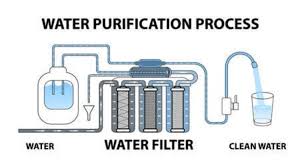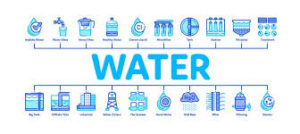How to Start a Water Purification Business: A Comprehensive Guide
Introduction
The demand for clean and safe drinking water is at an all-time high. With increasing pollution levels, concerns over waterborne diseases, and the growing awareness of health and wellness, the water purification industry presents a lucrative and impactful business opportunity. Whether catering to households, businesses, or industries, starting a water purification business can be both profitable and socially responsible.
However, setting up a successful water purification business requires proper planning, technical know-how, and a strategic marketing approach. This guide will provide you with a step-by-step approach to launching your own water purification business, explaining the differences between water purification and filtration, and helping you find a professional business plan writer to craft a compelling and investor-ready business plan.
Understanding Water Purification vs. Water Filtration
Before diving into the business, it’s crucial to understand the difference between water purification and water filtration:
Water Filtration
Water filtration is the process of removing physical impurities, sediments, and some contaminants from water using a filtration medium, such as activated carbon, sand, or ceramic filters. It primarily focuses on improving the clarity, taste, and odor of water but may not completely remove bacteria, viruses, or dissolved chemicals.
Common water filtration methods include:
- Activated Carbon Filters – Remove chlorine, sediments, and some organic compounds.
- Sediment Filters – Trap dirt, rust, and debris.
- Reverse Osmosis (RO) Filters – Remove heavy metals and dissolved salts.
Water Purification
Water purification, on the other hand, is a more advanced process that removes biological, chemical, and physical contaminants to make water completely safe for drinking. It eliminates bacteria, viruses, heavy metals, and harmful chemicals.
Common water purification methods include:
- Distillation – Boiling water to remove impurities and contaminants.
- UV Purification – Using ultraviolet light to kill bacteria and viruses.
- Reverse Osmosis (RO) Systems – Removing dissolved solids, heavy metals, and toxins.
- Chlorination – Using chlorine to disinfect water and kill harmful microorganisms.
If you’re planning to start a business, water purification offers a more comprehensive solution, ensuring your customers receive completely safe and high-quality drinking water.
Conduct Market Research
Market research is essential to understanding your target audience, competition, and demand for purified water in your location. Consider the following:
- Identify Your Target Market: Residential homes, businesses, schools, hospitals, restaurants, or industrial clients.
- Analyze Competitors: Who are the leading water purification businesses in your area? What are their pricing strategies?
- Assess Demand: Is there a lack of clean drinking water? Are local consumers willing to invest in purified water services?
- Regulatory Requirements: What are the legal and health regulations governing water purification businesses in your area?
Develop a Business Plan
A well-structured business plan is crucial for securing funding, attracting customers, and ensuring your business operates efficiently. Your business plan should include:
1. Executive Summary
A brief overview of your water purification business, your mission, and your business goals.
2. Company Description
Explain the nature of your business, the type of purification methods you’ll use, and the services you will provide.
3. Market Analysis
Detailed research on your target market, demand for purified water, and your competitors.
4. Business Model & Revenue Streams
- Selling purified bottled water.
- Installing purification systems for households and businesses.
- Offering maintenance and repair services.
5. Operational Plan
- Sourcing water purification equipment and technology.
- Establishing a production and distribution system.
- Hiring skilled staff and technicians.
6. Marketing & Sales Strategy
- Digital marketing and social media advertising.
- Partnerships with businesses, schools, and health organizations.
- Offering free water testing to attract customers.
7. Financial Projections
Estimated costs, revenue forecasts, and expected profitability.
If you need a professional business plan writer, there are several platforms where you can find experts:
- Upwork – Freelance business plan writers with experience in the water industry.
- Fiverr – Affordable business plan services for startups.
- LivePlan – A business planning software with expert consultation.
- SCORE.org – Free business plan mentorship from industry professionals.
- Local Business Consultants – Many consulting firms specialize in creating investor-ready business plans.
Hiring a professional business plan writer ensures your plan is well-structured, clear, and capable of attracting investors and customers.
Register Your Business and Obtain Licenses
Starting a water purification business requires legal compliance:
- Register Your Business: Choose a legal structure (Sole Proprietorship, LLC, Corporation).
- Obtain Necessary Permits: Health department approvals, environmental permits, and business licenses.
- Ensure Compliance: Meet local water safety and purification standards.
- Trademark Your Brand: Protect your business name and logo.
Acquire Equipment and Set Up Operations
You will need specialized equipment depending on your purification method:
- Reverse osmosis systems
- Water distillation units
- UV purification systems
- Bottling and packaging machines
- Water quality testing kits
You can source equipment from reputable suppliers like:
- Culligan Water
- Pure Aqua, Inc.
- Pentair
- EcoWater Systems
Establish a water source, purification facility, and a distribution system to deliver clean water efficiently.
Develop a Strong Branding and Marketing Strategy
A well-branded business attracts more customers. Here’s how you can market your water purification business:
- Create a Website – Showcase your services, testimonials, and contact details.
- Social Media Marketing – Promote your brand on Facebook, Instagram, and LinkedIn.
- Offer Free Water Testing – Engage potential customers by demonstrating your product’s effectiveness.
- Local Partnerships – Collaborate with schools, hospitals, and businesses that need purified water.
- SEO and Content Marketing – Write blogs about the benefits of purified water to increase visibility.
Build Customer Trust and Retention
Customer satisfaction is key to your business’s success.
- Maintain High Water Quality Standards – Regularly test and certify your water.
- Provide Excellent Customer Service – Respond to inquiries promptly and professionally.
- Implement a Loyalty Program – Offer discounts for repeat customers.
- Get Certifications – Obtain NSF, ISO, or FDA approval for credibility.
Final Thoughts
Starting a water purification business is a rewarding opportunity, both financially and socially. By understanding the market, investing in quality equipment, complying with regulations, and implementing a strong marketing strategy, you can establish a successful and reputable business. Would you like assistance in drafting a customized business plan for your water purification business? Let me know how I can help! 🚀



